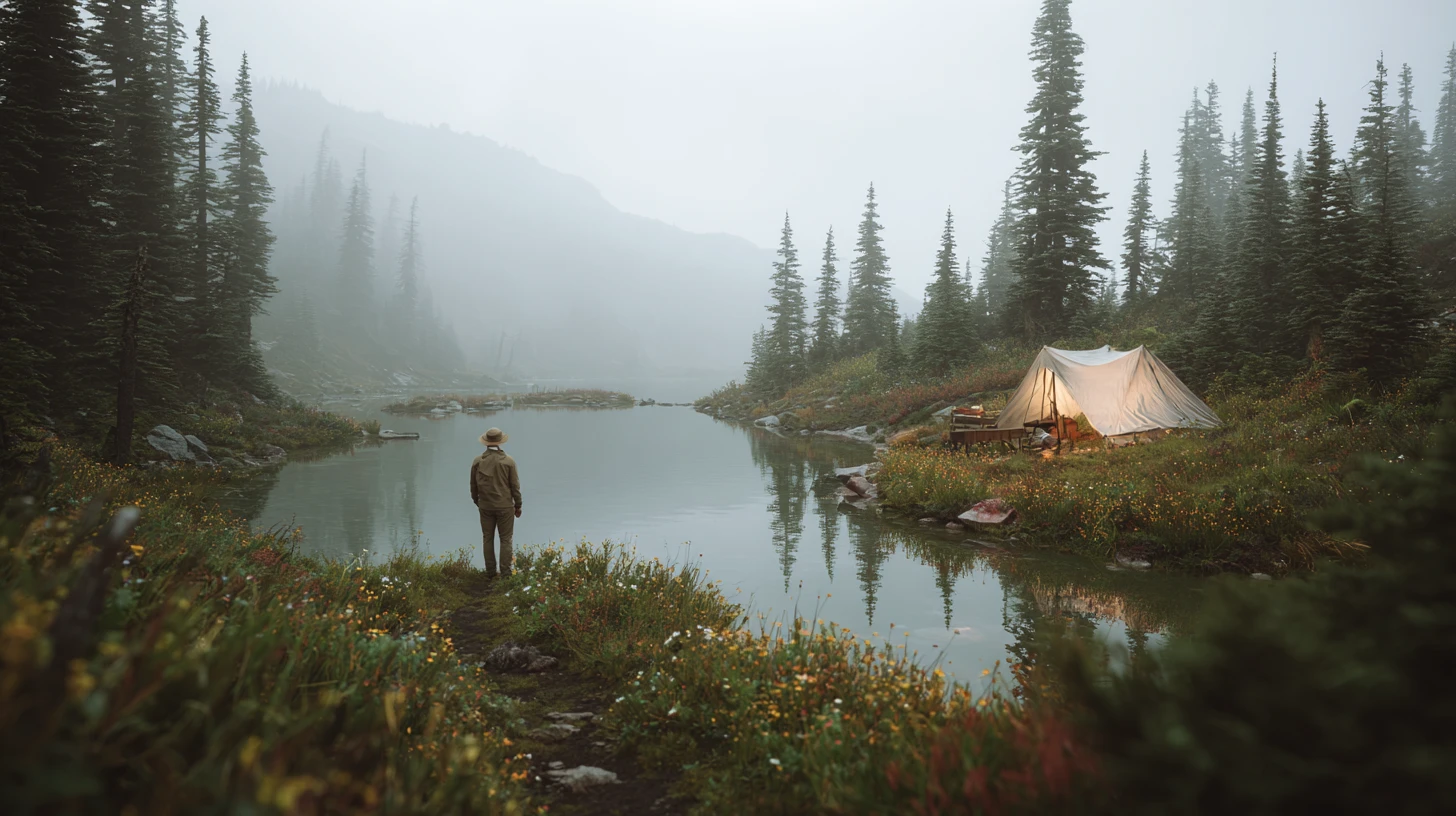- The benefits of wandering: Embracing the unexpected
- Understanding the fear of losing direction
- The cognitive advantages of getting lost
- How to intentionally incorporate getting lost into your life
When we surrender to the idea of wandering, we open ourselves to a world rich with new experiences and insights. The thrill of exploration, paired with the inherent chaos of losing our way, can lead to unanticipated discoveries that enrich our lives in profound ways. Numerous studies indicate that engaging with the unfamiliar can trigger creativity, enhance problem-solving skills, and foster a sense of adventure that we often overlook in our structured, daily routines.
Wandering doesn’t merely involve physical movement; it embodies a mindset that encourages us to embrace spontaneity. Research published in the Journal of Environmental Psychology highlights that individuals who explore unknown environments report higher levels of satisfaction and joy. This sense of freedom can be particularly revitalizing in a world that often prioritizes certainty and planning over curiosity. Embracing the unexpected can lead to serendipitous encounters and unexpected friendships, rekindling a sense of wonder we often lose in adulthood.
Furthermore, letting go of our sense of direction can serve as a powerful tool for personal growth. When we find ourselves in unfamiliar settings, we are forced to adapt and rely on our instincts, often leading to revelations about ourselves and our capabilities. Dr. David Strayer, a cognitive psychologist known for his research on the psychology of attention, notes that when we step outside our comfort zones—such as by getting lost—we activate new neural pathways. This stimulation not only enhances creative thinking but also can improve our resilience in facing life’s challenges.
In essence, taking the path less traveled allows us to cultivate a greater awareness of our surroundings. The landscape transforms into a canvas for exploration where each turn may unveil a hidden gem, whether it’s a stunning view, a charming local eatery, or a chance interaction with fellow travelers. This attitude toward wandering connects deeply with nature, embodying the spirit of modern camping, where the drive to explore the outdoors intersects beautifully with the mental clarity that comes from disconnecting from our usual habits and routines.
Ultimately, embracing the unexpected fosters a deeper appreciation for life, inviting us to navigate our journeys with curiosity rather than fear. The beauty of wandering lies not just in the destination but in the adventures we undertake, the stories we collect, and the lessons we learn along the way. So, the next time you find yourself at a crossroads—literally or metaphorically—allow yourself the freedom to wander and see where the experience takes you.
Understanding the fear of losing direction

Fear often comes inherently with the notion of losing direction, rooted deeply in our psychological makeup. Many individuals experience anxiety when faced with the unknown, worrying about potential risks or disorientation that may arise from stepping off the beaten path. This fear is exacerbated by a societal emphasis on efficiency and success, where deviations from a planned route are viewed as shortcomings or failures rather than opportunities for growth.
The discomfort of uncertainty can manifest in various ways, from simple nervousness to a paralyzing inability to make decisions, often causing individuals to cling tightly to familiar routines and predictable environments. However, understanding that this fear is a natural response can be the first step in overcoming it. By reframing our perspective on losing our way, we can transform a potentially distressing experience into one that fosters courage and resilience. Engaging with our surroundings, even when they are unfamiliar, allows us to confront our fears and encourages us to embrace spontaneity and personal growth.
Embracing Uncertainty
When we learn to embrace uncertainty, we can unlock a pathway to deeper self-discovery. Letting go of the need for control opens up the possibility of insights gained through exploration. Psychologists suggest that intentionally putting ourselves in situations where we might get lost—be it trying a new route home or exploring a new city without a map—can enhance our decision-making capabilities. By allowing ourselves to be vulnerable to the experience, we can cultivate a sense of adaptability that carries over into other areas of our lives. (Imagery prompt: a winding path disappearing into a misty forest, symbolizing uncertainty)
Fostering Growth Through Exploration
Taking time to orient ourselves in unfamiliar settings can lead to significant cognitive benefits. When we step outside of our comfort zones, our brain engages more dynamically, processing new information and creating mental connections that would otherwise go unchallenged. This can enhance both our problem-solving skills and our ability to think creatively. Furthermore, navigating through an unknown environment can spark a renewed curiosity and zest for life, leading to innovative thinking and personal revelations. Such experiences can ultimately empower us, showing that the fear of losing direction can be transformed into a tool for growth. (Imagery prompt: a person standing at a crossroads, looking at both paths with curiosity)
- Acknowledgment of Fear: Recognizing and accepting our fear of the unknown is crucial for overcoming it, allowing us to face challenges head-on.
- Exposure Therapy: Intentionally placing ourselves in unfamiliar situations can help desensitize the fear response and promote adaptability.
- Cognitive Flexibility: Engaging with new environments encourages an expansive mindset, leading to enhanced creativity and problem-solving abilities.
The cognitive advantages of getting lost
 Experiencing disorientation can proactively stimulate our cognitive functions, leading to enhanced problem-solving skills and increased creativity. When we navigate new environments, our brain is prompted to form new connections and pathways, fostering a state of cognitive flexibility. This can be particularly beneficial for anyone looking to break free from conventional thinking patterns. Research in cognitive psychology shows that the act of getting lost can engage different parts of our brain, helping us synthesize information in unique ways and encouraging divergent thinking.
Experiencing disorientation can proactively stimulate our cognitive functions, leading to enhanced problem-solving skills and increased creativity. When we navigate new environments, our brain is prompted to form new connections and pathways, fostering a state of cognitive flexibility. This can be particularly beneficial for anyone looking to break free from conventional thinking patterns. Research in cognitive psychology shows that the act of getting lost can engage different parts of our brain, helping us synthesize information in unique ways and encouraging divergent thinking.
Incorporating wandering into our lives is not only about the thrill of adventure but also about the *tangible cognitive benefits* that arise from such experiences. For instance, while camping in the great outdoors, individuals often face unexpected challenges—such as rough terrain or sudden weather changes—that require immediate problem-solving. These moments force us to think on our feet and adapt to circumstances. A simple camping trip can turn into a powerful cognitive workout that enhances our abilities to assess risks and make decisions under pressure.
Moreover, engaging with nature during these moments can amplify the cognitive advantages associated with getting lost. Nature has been shown to have restorative effects on our mental states, enhancing our focus and boosting overall cognitive function. Getting lost in a forest or on a hiking trail invites us to tap into our instincts and encourages awareness of our surroundings, resulting in a heightened sense of clarity and creativity.
To illustrate some of the reasons why people venture into the great outdoors, consider the following table:
| Reason to Camp | Benefits |
|---|---|
| Reconnect with Nature | *Reduces stress and boosts mood, promoting mental well-being.* |
| Social Connections | *Strengthens relationships through shared experiences and bonding.* |
| Adventure and Exploration | *Encourages a sense of discovery and enhances problem-solving skills.* |
| Digital Detox | *Fosters mindfulness by unplugging from technology and distractions.* |
| Personal Growth | *Builds resilience and adaptability through new challenges.* |
In essence, wandering through the world—be it lost in a city or amidst the trees—invites us to cultivate a mindset rooted in exploration and discovery. As you plan your next outdoor adventure, consider experiences that encourage you to embrace the unexpected. For those seeking unique opportunities for exploration and outdoor experiences, EscapadeEmporium.com offers a variety of options to get lost in nature while nurturing your cognitive growth.
*Imagine the rich tapestry of experiences, a forest trail leading into the unknown, beckoning with the promise of adventure.*
How to intentionally incorporate getting lost into your life
 Incorporating moments of intentional disorientation into your life can be a refreshing way to foster creativity and adaptability. One of the simplest yet most effective strategies is to deliberately take a different route during your daily commute. Rather than following your usual path to work or home, try exploring side streets or unfamiliar neighborhoods. This slight deviation can ignite a sense of adventure and stimulate your brain to observe and process new surroundings. Be curious about what you see—take note of the architecture, local shops, or parks you may not have encountered before. Engaging with your environment in this way can deepen your appreciation for the familiar, while also encouraging a mindset open to exploration.
Incorporating moments of intentional disorientation into your life can be a refreshing way to foster creativity and adaptability. One of the simplest yet most effective strategies is to deliberately take a different route during your daily commute. Rather than following your usual path to work or home, try exploring side streets or unfamiliar neighborhoods. This slight deviation can ignite a sense of adventure and stimulate your brain to observe and process new surroundings. Be curious about what you see—take note of the architecture, local shops, or parks you may not have encountered before. Engaging with your environment in this way can deepen your appreciation for the familiar, while also encouraging a mindset open to exploration.
Another practical method to integrate getting lost into your life is to set aside dedicated days for exploration. Plan a day where the objective is simply to explore without a set destination. Whether in your hometown or while traveling, choose a location that interests you and allow yourself to wander freely. Leave your phone or map at home to enhance the experience—this approach encourages you to rely on your instincts and enables more organic interactions with your surroundings. You might stumble upon a quaint café, a vibrant street art installation, or a hidden garden. The essence of these experiences lies in their unpredictability, and the vibrant anecdotes collected will enrich your personal narratives.
Joining organized activities such as hiking groups or adventure meetups can also be an effective way to embrace the art of wandering. Many such groups focus on exploration and adventure, and they often take participants off the beaten path. Engaging in these social experiences can alleviate the fear of exploring alone while also fostering deeper connections with others who share a passion for discovery. The camaraderie developed through shared moments of getting lost can lead to lasting friendships, while also providing a supportive environment to push your boundaries.
Consider immersing yourself in nature-based retreats that specifically emphasize the practice of getting lost. Activities like wilderness survival courses or adventure therapy encourage participants to step outside of their comfort zones. These experiences help cultivate resilience and self-reliance. Being in nature often heightens our awareness, inviting feelings of peace and connection, and the unpredictability of outdoor elements will naturally lead to moments of exploration. It’s these spontaneous happenings that fuel personal growth and cognitive flexibility.
Lastly, reflect on the benefits of creating a personal “lost journal.” Document your experiences when you intentionally venture off course—what did you discover, how did you feel, and what insights arose from those moments? Journaling about your experiences can serve as a powerful tool for introspection, allowing you to track your journey toward embracing uncertainty.
If you’re still unsure about how to begin incorporating this practice into your life, here are some commonly posed questions that can guide your exploration:
- What are some simple ways to get lost in my everyday life?
- You can take a different route during your commute, explore new neighborhoods, or join local hiking groups to experience new surroundings.
- How can getting lost boost my creativity?
- Intentionally getting lost encourages your brain to form new connections and engage with the unexpected, leading to innovative thinking.
- Can I experience the benefits of getting lost without traveling?
- Absolutely! Engaging with your local environment, like parks or urban sides you don’t usually visit, can provide rich opportunities for exploration.
- Is it safe to intentionally get lost?
- While it can be a safe and enriching experience, it’s important to ensure you are in a familiar area or have a way to navigate back if needed.
- How frequently should I try to get lost?
- Aim to incorporate moments of exploration into your weekly routine, whether through dedicated outings or small detours during daily activities.
Incorporating intentional moments of getting lost not only enriches your life but also enhances your ability to adapt to new situations, fostering a sense of adventure that can lead to personal and cognitive growth.

Leave a Reply